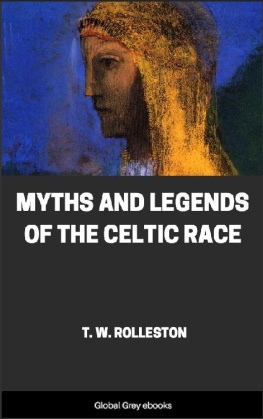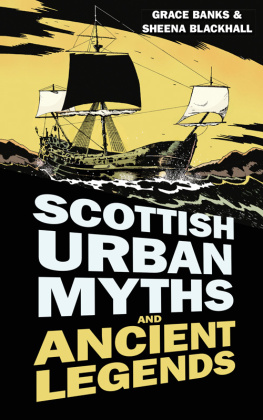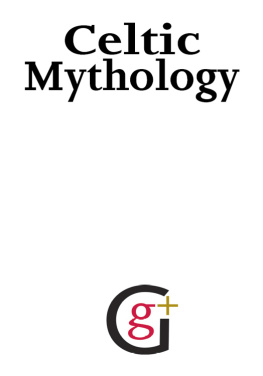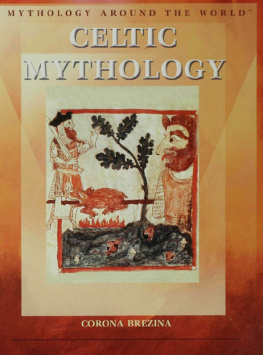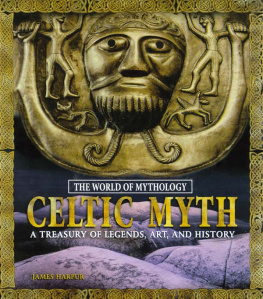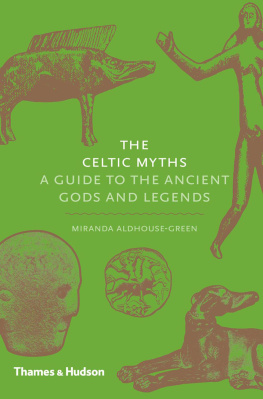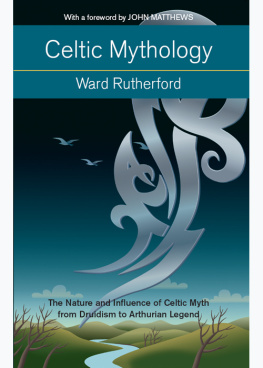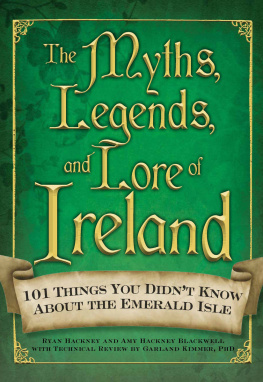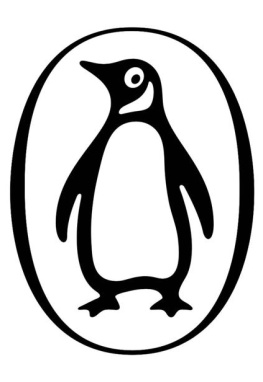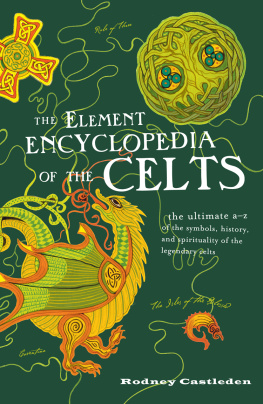T. W. Rolleston - Myths and Legends of the Celtic Race
Here you can read online T. W. Rolleston - Myths and Legends of the Celtic Race full text of the book (entire story) in english for free. Download pdf and epub, get meaning, cover and reviews about this ebook. year: 2018, publisher: Global Grey ebooks, genre: Religion. Description of the work, (preface) as well as reviews are available. Best literature library LitArk.com created for fans of good reading and offers a wide selection of genres:
Romance novel
Science fiction
Adventure
Detective
Science
History
Home and family
Prose
Art
Politics
Computer
Non-fiction
Religion
Business
Children
Humor
Choose a favorite category and find really read worthwhile books. Enjoy immersion in the world of imagination, feel the emotions of the characters or learn something new for yourself, make an fascinating discovery.
- Book:Myths and Legends of the Celtic Race
- Author:
- Publisher:Global Grey ebooks
- Genre:
- Year:2018
- Rating:4 / 5
- Favourites:Add to favourites
- Your mark:
- 80
- 1
- 2
- 3
- 4
- 5
Myths and Legends of the Celtic Race: summary, description and annotation
We offer to read an annotation, description, summary or preface (depends on what the author of the book "Myths and Legends of the Celtic Race" wrote himself). If you haven't found the necessary information about the book — write in the comments, we will try to find it.
Myths and Legends of the Celtic Race — read online for free the complete book (whole text) full work
Below is the text of the book, divided by pages. System saving the place of the last page read, allows you to conveniently read the book "Myths and Legends of the Celtic Race" online for free, without having to search again every time where you left off. Put a bookmark, and you can go to the page where you finished reading at any time.
Font size:
Interval:
Bookmark:
MYTHS AND LEGENDS OF THE CELTIC RACE
BY
T. W. ROLLESTON
1911
Myths and Legends of the Celtic Race By T. W. Rolleston.
This edition was created and published by Global Grey
GlobalGrey 2018

globalgreyebooks.com
The Past may be forgotten, but it never dies. The elements which in the most remote times have entered into a nation's composition endure through all its history, and help to mould that history, and to stamp the character and genius of the people.
The examination, therefore, of these elements, and the recognition, as far as possible, of the part they have actually contributed to the warp and weft of a nation's life, must be a matter of no small interest and importance to those who realise that the present is the child of the past, and the future of the present; who will not regard themselves, their kinsfolk, and their fellow-citizens as mere transitory phantoms, hurrying from darkness into darkness, but who know that, in them, a vast historic stream of national life is passing from its distant and mysterious origin towards a future which is largely conditioned by all the past wanderings of that human stream, but which is also, in no small degree, what they, by their courage, their patriotism, their knowledge, and their understanding, choose to make it.
The part played by the Celtic race as a formative influence in the history, the literature, and the art of the people inhabiting the British Islandsa people which from that centre has spread its dominions over so vast an area of the earth's surfacehas been unduly obscured in popular thought. For this the current use of the term Anglo-Saxon applied to the British people as a designation of race is largely responsible. Historically the term is quite misleading. There is nothing to justify this singling out of two Low-German tribes when we wish to indicate the race-character of the British people. The use of it leads to such absurdities as that which the writer noticed not long ago, when the proposed elevation by the Pope of an Irish bishop to a cardinalate was described in an English newspaper as being prompted by the desire of the head of the Catholic Church to pay a compliment to the Anglo-Saxon race.
The true term for the population of these islands, and for the typical and dominant part of the population of North America, is not Anglo-Saxon, but Anglo-Celtic. It is precisely in this blend of Germanic and Celtic elements that the British people are uniqueit is precisely this blend which gives to this people the fire, the lan, and in literature and art the sense of style, colour, drama, which are not common growths of German soil, while at the same time it gives the deliberateness and depth, the reverence for ancient law and custom, and the passion for personal freedom, which are more or less strange to the Romance nations of the South of Europe. May they never become strange to the British Islands! Nor is the Celtic element in these islands to be regarded as contributed wholly, or even very predominantly, by the populations of the so-called Celtic Fringe. It is now well known to ethnologists that the Saxons did not by any means exterminate the Celtic or Celticised populations whom they found in possession of Great Britain. Mr. E.W.B. Nicholson, librarian of the Bodleian, writes in his important work Keltic Researches (1904):
Names which have not been purposely invented to describe race must never be taken as proof of race, but only as proof of community of language, or community of political organisation. We call a man who speaks English, lives in England, and bears an obviously English name (such as Freeman or Newton), an Englishman. Yet from the statistics of relative nigrescence there is good reason to believe that Lancashire, West Yorkshire, Staffordshire, Worcestershire, Warwickshire, Leicestershire, Rutland, Cambridgeshire, Wiltshire, Somerset, and part of Sussex are as Keltic as Perthshire and North Munster; that Cheshire, Shropshire, Herefordshire, Monmouthshire, Gloucestershire, Devon, Dorset, Northamptonshire, Huntingdonshire, and Bedfordshire are more soand equal to North Wales and Leinster; while Buckinghamshire and Hertfordshire exceed even this degree, and are on a level with South Wales and Ulster.
It is, then, for an Anglo-Celtic, not an Anglo-Saxon, people that this account of the early history, the religion, and the mythical and romantic literature of the Celtic race is written. It is hoped that that people will find in it things worthy to be remembered as contributions to the general stock of European culture, but worthy above all to be borne in mind by those who have inherited more than have any other living people of the blood, the instincts and the genius of the Celt.
Earliest References
In the chronicles of the classical nations for about five hundred years previous to the Christian era there are frequent references to a people associated with these nations, sometimes in peace, sometimes in war, and evidently occupying a position of great strength and influence in the Terra Incognita of Mid-Europe. This people is called by the Greeks the Hyperboreans or Celts, the latter term being first found in the geographer Hecatsus, about 500 B.C.
Herodotus, about half a century later, speaks of the Celts as dwelling beyond the pillars of Herculesi.e., in Spainand also of the Danube as rising in their country.
Aristotle knew that they dwelt beyond Spain, that they had captured Rome, and that they set great store by warlike power. References other than geographical are occasionally met with even in early writers. Hellanicus of Lesbos, an historian of the fifth century B.C., describes the Celts as practising justice and righteousness. Ephorus, about 350 B.C., has three lines of verse about the Celts in which they are described as using the same customs as the Greekswhatever that may meanand being on the friendliest terms with that people, who established guest friendships among them. Plato, however, in the Laws, classes the Celts among the races who are drunken and combative, and much barbarity is attributed to them on the occasion of their irruption into Greece and the sacking of Delphi in the year 273 B.C. Their attack on Rome and the sacking of that city by them about a century earlier is one of the landmarks of ancient history.
The history of this people during the time when they were the dominant power in Mid-Europe has to be divined or reconstructed from scattered references, and from accounts of episodes in their dealings with Greece and Rome, very much as the figure of a primval monster is reconstructed by the zoologist from a few fossilised bones. No chronicles of their own have come down to us, no architectural remains have survived; a few coins, and a few ornaments and weapons in bronze decorated with enamel or with subtle and beautiful designs in chased or repouss workthese, and the names which often cling in strangely altered forms to the places where they dwelt, from the Euxine to the British Islands, are well-nigh all the visible traces which this once mighty power has left us of its civilisation and dominion. Yet from these, and from the accounts of classical writers, much can be deduced with certainty, and much more can be conjectured with a very fair measure of probability. The great Celtic scholar whose loss we have recently had to deplore, M. d'Arbois de Jubainville, has, on the available data, drawn a convincing outline of Celtic history for the period prior to their emergence into full historical light with the conquests of Csar, and it is this outline of which the main features are reproduced here.
Next pageFont size:
Interval:
Bookmark:
Similar books «Myths and Legends of the Celtic Race»
Look at similar books to Myths and Legends of the Celtic Race. We have selected literature similar in name and meaning in the hope of providing readers with more options to find new, interesting, not yet read works.
Discussion, reviews of the book Myths and Legends of the Celtic Race and just readers' own opinions. Leave your comments, write what you think about the work, its meaning or the main characters. Specify what exactly you liked and what you didn't like, and why you think so.

